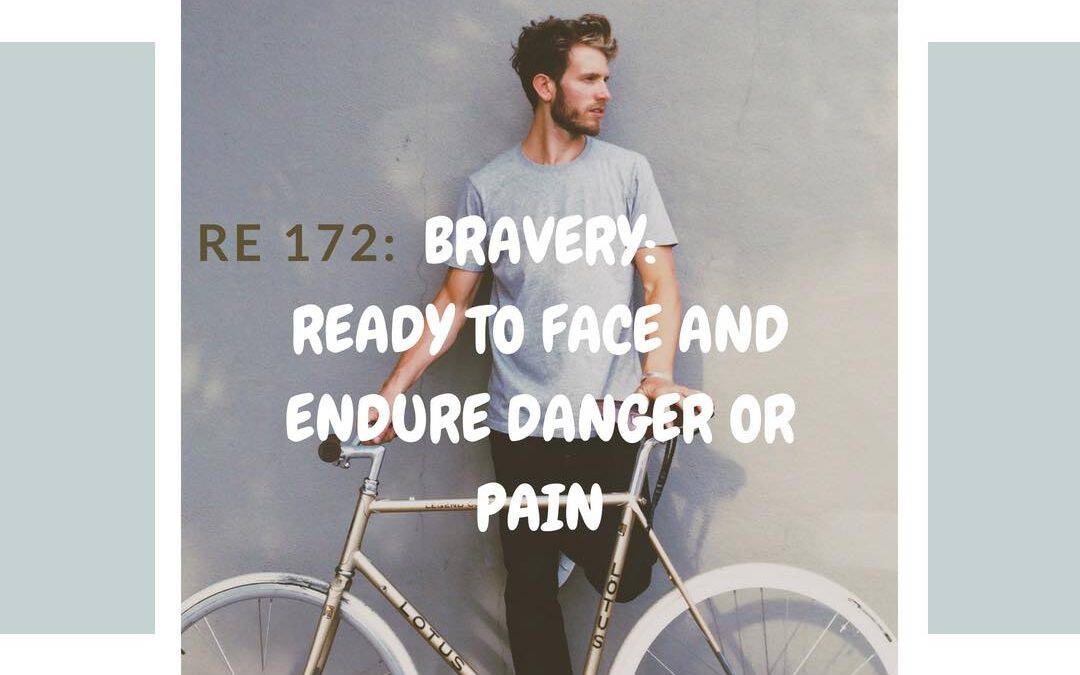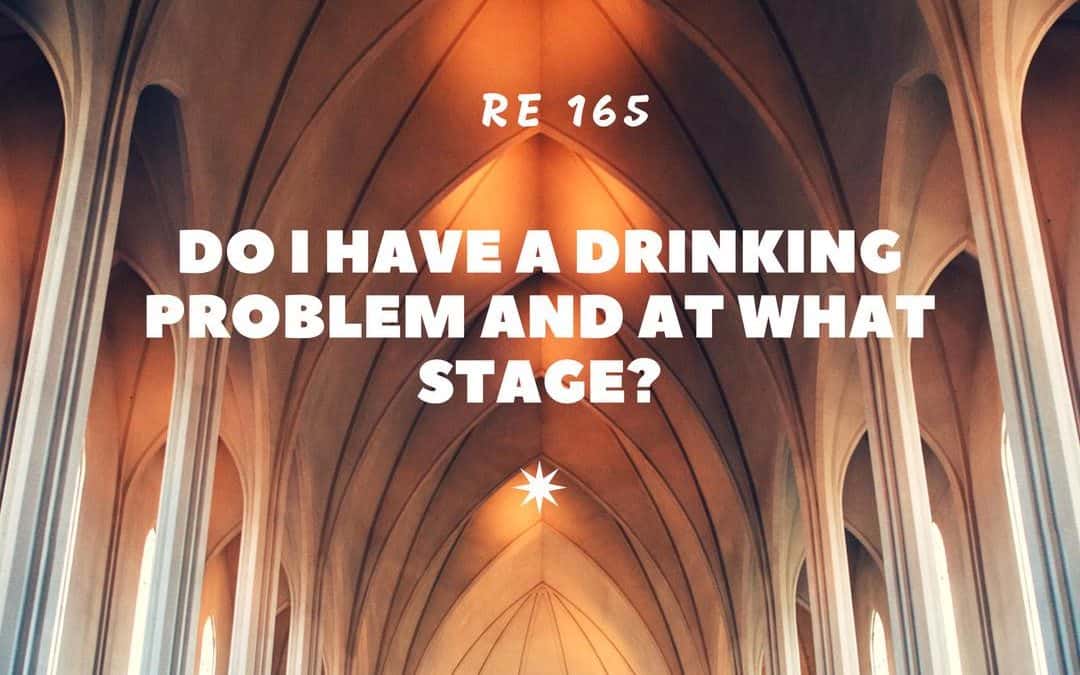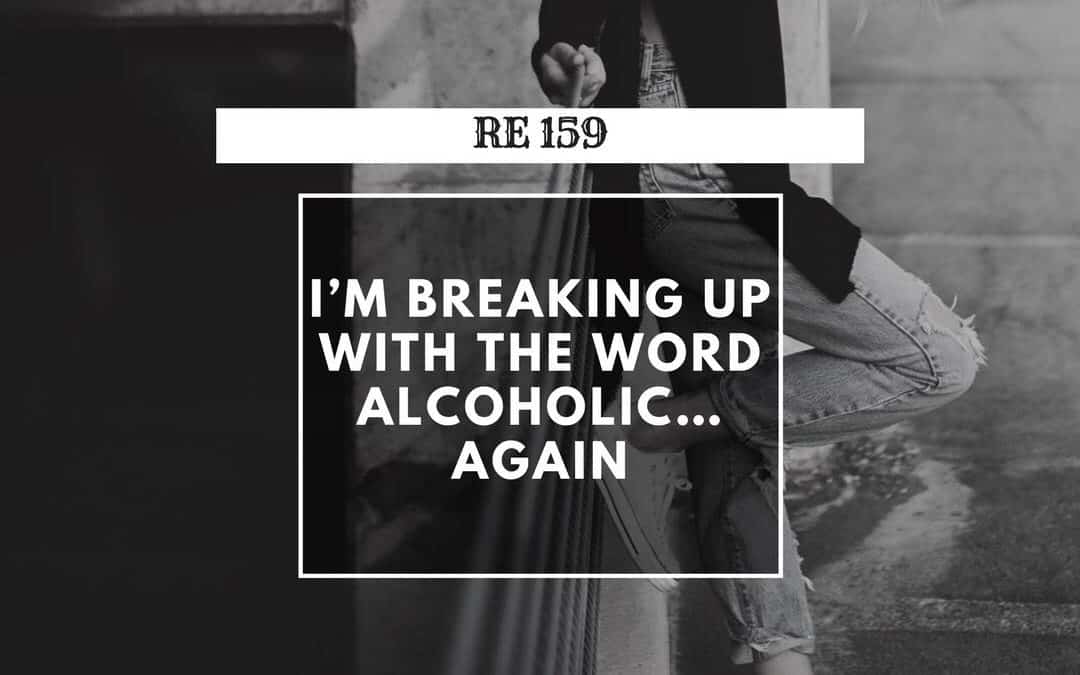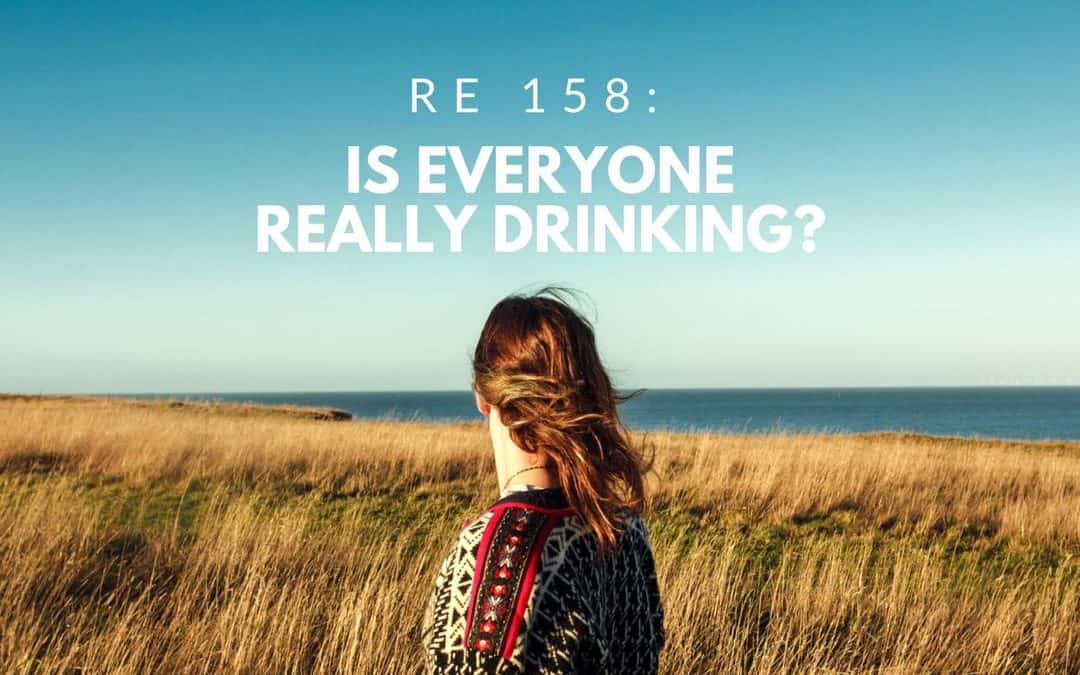
by Paul Churchill | Jul 9, 2018 | Podcast
Podcast: Play in new window | Download
Subscribe to the Recovery Elevator Podcast Apple Podcasts | | More
Today we hear from Jade. She’s 27 years old, from Kentucky and has had her last drink on April 14th 2018.
The Ego: The part of the mind that mediates between the conscious and unconscious mind. It is in charge of reality testing and gives us a sense of personal identity. The self concept. A collection of beliefs that serve as the foundation for our bearings in life.
A healthy ego can serve to give us something to lean on when times get tough. We believe in ourselves and are capable of handling adversity or difficult emotions.
An unhealthy ego can cause us a lot of problems. When an ego gets unhealthy, it can keep us from living in the present moment because we harbor beliefs about ourselves that aren’t congruent with reality.
Letting go of an unhealthy ego is a big step in recovery.
Jade, with about 2 months since her last drink, shares her story…
SHOW NOTES
[11:15] Paul Introduces Jade.
Jade is a 27-year-old liquor store manager from Kentucky. She has a dog, and enjoys the outdoors, playing the piano and reading.
[13:00] When did you first realize that you had a problem with alcohol?
She started at 16. She realized she had a problem at about 25. She was in a failing relationship and was dealing with a lot of stress. She turned to alcohol. She made a first quit attempt, and during those 40 days she realized that her relationship needed to end. After relapse, she made friends with people who drank as much as she did. Many parts of her life revolved around alcohol. Once she started she realized she couldn’t stop.
[17:40] How hard was it to only have 1 or 2 drinks?
Once she started, if she couldn’t continue she would get irritable. At first alcohol was very social, but eventually she didn’t want to be around people when she was drinking. She started only getting drunk alone.
[20:30] Did you make any attempts to moderate your drinking?
She would skip if she was super hungover. She switched from beer and wine to liquor. She figured it was less calories and better for dieting, and more concentrated so it was quicker getting drunk.
[22:50] How did you end up quitting?
She had been trying for two years. She started reading and listening to podcasts. She browsed the r/stopdrinking subreddit. She figured out that she couldn’t do it alone, and that she needed to join a community. She made the step to reach out. She didn’t think she was worth sobriety and she didn’t think anyone would care. She found out the exact opposite was true. It has been easier than she thought. The community made the difference for her.
[27:45] Have you had any cravings? What did you do?
She had many. She would post on Cafe RE and engage the community there. “Playing the tape forward” helped as well. The loss of control always bothered her when she was drinking.
[29:35] What have you learned most about yourself in sobriety so far?
Her emotions aren’t permanent. When her emotions got difficult in the past, she thought they were going to last forever and she would respond by running away from them. Now she is learning how to deal with them in a healthy way by sitting with them and listening to what they have to say. She doesn’t need to reach for a distraction. She doesn’t have to run away from her own mind as much.
[31:31] What is the biggest challenge you’ve faced so far in sobriety?
Getting out of the routine. She feels like something is missing.
[33:42] Walk us through a day in your recovery. What’s your plan to keep adding days?
She tries to get up earlier to get a good walk in with her dog. She takes care of her dog, plays her piano. She disperses recovery nuggets throughout her day to help get her through.
[35:19] So you were a manager at the liquor store?
It hasn’t been bad at all. She feels like she’s made up her mind and doesn’t feel any temptation. She is now able to identify the alcoholics that come in. She appreciates the flexibility she gets with her job and is able to also study.
[39:40] Rapid Fire Round
- What was your worst memory from drinking?Blacking out and not remembering what happened.
- Did you ever have an “oh-shit” moment?
Instead of getting hangovers she was getting alcohol withdrawal with anxiety.
- What’s your plan moving forward?She wants to go to more meetings to meet sober people.
- What’s your favorite resource in recovery?
- What’s the best advice you’ve ever received (on sobriety)?She felt like a burden asking people for help. Someone told her that by sharing her struggle it helped other people to stay sober.
- What parting piece of guidance can you give listeners who are in recovery or thinking about quitting drinking?To reach out and find a support system. She was surprised by the amount of support she received.
- You might be an alcoholic if…“you leave your job at the liquor store to drive to the other liquor store across town to buy alcohol so your co-workers don’t know how much you drink after work.”
Resources mentioned in this episode:
This podcast episode is brought to you in support by Zip Recruiter and right now, my listeners can try Zip Recruiter for free. Go to www.ziprecruiter.com/elevator and get started today.
This Naked Mind – a book by Annie Grace
Connect with Cafe RE– Use the promo code Elevator for your first month free
Sobriety Tracker iTunes
Sobriety Tracker Android
Sober Selfies! – Send your Sober Selfie and your Success Story to info@recoveryelevator.com
“We took the elevator down, we gotta take the stairs back up, we can do this!”

by Paul Churchill | Jun 4, 2018 | Podcast
Podcast: Play in new window | Download
Subscribe to the Recovery Elevator Podcast Apple Podcasts | | More
Bravery: Ready to face and endure danger or pain. Showing Courage.
Many times in life we come face to face with our next step. We can see clearly the path ahead that will lead to our next “level up”. We can know everything there is to know about our plight and circumstances. We can possess the very map that will lead us to the next door. But when the time comes, sometimes we hesitate to open it.
In sobriety, you have to be willing to fail. People who seek sobriety are a particular kind of brave. They imagine another way to be and actively seek it out, even if it means going against the grain or swimming upstream.
It’s important to note that being brave and/or courageous does not mean being without fear. Feeling fear is not only normal, but it’s an important part of the process.
The growth we seek lies not in running from fear, but in embracing it and, if possible, learning from it. Fear can be a profound and necessary teacher. Bring brave and courageous means that instead of avoiding fear, we compassionately face it and move forward with it as an ally in our sobriety portfolio.
Individual bravery becomes amplified and much more powerful when supported by the collective bravery of the sobriety community.
Beth, with 6 months since her last drink, shares her story…
SHOW NOTES
[8:50] Paul Introduces Beth.
Beth has been sober for just over 6 months. She’s 39 years old. She’s a mother of 3 from New Jersey. She’s a special education teacher. She loves the outdoors, sports, art, and music. She is learning skateboarding from her 9-year-old nephew.
[11:38] When did you realize you had a problem with drinking?
She started drinking heavily in college in an attempt to deal with social situations and have fun. She always felt different from other people, and was also dealing with a recent death in the family. She had easy access to alcohol in school. She moved to New York City right before the attack on the World Trade Center. She used alcohol to deal with stress and difficult emotions.
[16:40] Did you ever try to put any rules into place to moderate?
Yes. She would try to regulate the times she could drink. She would try to regulate when she was allowed to drink hard alcohol.
[18:25] How much were you drinking before you quit?
She drank nightly. Red wine helped her deal with stress when dealing with her kid’s homework.
[20:15] Did you reach a rock bottom?
She drank while taking her kids out for Halloween. She drank a lot and experienced a bad hangover. She began to worry about whether or not she was a good mother. She discovered the podcast and began to listen. She decided to become sober and joined Cafe RE.
[26:20] What was it like at first when you quit?
She was excited. She told a few close friends and family members. She wanted to get back into running. She felt great. She avoided concerts and other places where she used to drink. She did whatever it took to not drink.
[28:45] Have you changed your mind about AA now that you’re sober?
It was a complete 180 degree change. She began to feel more connected and she related to them more than before. She is looking forward to expanding her recovery community.
[33:45] How has your perception changed?
She knows she’s on the right track, but she is starting to fear relapsing. She is trying to break free from her perfectionist mentality. She is facing and processing a lot of shame from her past. She appreciates the benefits from her newly found clarity.
[37:50] What happened when you accidentally posted your sobriety on Facebook?
She received some unexpected messages of support from different moms in her social network. She gave others the info for getting help. She believes alcohol is a real gateway drug.
[41:24] Rapid Fire Round
- What was your worst memory from drinking?
Her birthday in NYC. After a night of dinner and drinks, she passed out on the floor next to her apartment door.
- Did you ever have an “oh-shit” moment?
She went to a concert for her daughter’s birthday. She needed beer badly. She made her kids wait in line forever so she could get a beer.
- What’s your plan moving forward?To continue staying healthy. Be more present with her kids. Get more organized. Find comfort within herself. She’s more happy with who she is.
- What’s your favorite resource in recovery?Cafe RE group because it will forward you to other great resources.
- What’s the best advice you’ve ever received (on sobriety)?
- What parting piece of guidance can you give listeners who are in recovery or thinking about quitting drinking?
If one drink is not enough, then it’s time to stop drinking. The poison has already begun to take effect. It’s not worth it. Trust your gut.
- You might be an alcoholic if…
“You’re pregnant, and you haven’t told anyone. You say you’re not drinking to someone, and they assume you’re pregnant because you usually will always have a drink.”
Resources mentioned in this episode:
Connect with Cafe RE– Use the promo code Elevator for your first month free
Sobriety Tracker iTunes
Sobriety Tracker Android
Sober Selfies! – Send your Sober Selfie and your Success Story to info@recoveryelevator.com
“We took the elevator down, we gotta take the stairs back up, we can do this!”

by Paul Churchill | Apr 16, 2018 | Podcast
Podcast: Play in new window | Download
Subscribe to the Recovery Elevator Podcast Apple Podcasts | | More
“Do I have a drinking problem?” Part II
The first episode under this particular theme came out back in March of 2015.
In “Drinking: A Love Story” by Caroline Knapp, a questionnaire is presented that will help you determine whether or not you have a drinking problem, and if yes, at what stage your drinking problem is. See the questions below:
1. Do you drink heavily when you are disappointed or have had a quarrel
with someone?
2. When you have trouble or feel under pressure, do you always drink more heavily than usual? |
|
| 3. Can you handle more alcohol now than when you first started to drink? |
|
4. Have you ever been unable to remember part of the previous evening, even though
your friends say you didn’t pass out? |
|
5. When drinking with other people, do you try to have a few extra drinks when others
won’t know about it? |
|
| 6. Do you sometimes feel uncomfortable if alcohol is not available? |
|
| 7. Are you more in a hurry to get your first drink of the day than you used to be? |
|
| 8. Do you sometimes feel a little guilty about your drinking? |
|
| 9. Has a family member or close friend express concern or complained about your drinking? |
|
| 10. Have you been having more memory “blackouts” recently? |
|
| 11. Do you often want to continue drinking after your friends say they’ve had enough? |
|
| 12. Do you usually have a reason for the occasions when you drink heavily? |
|
| 13. When you’re sober, do you sometimes regret things you did or said while drinking? |
|
14. Have you tried switching brands or drinks, or following different plans to control your
drinking? |
|
15. Have you sometimes failed to keep promises you made to yourself about controlling or
cutting down on your drinking? |
|
| 16. Have you ever tried to control your drinking by changing jobs or moving to a new location? |
|
| 17. Do you try to avoid family or close friends while you are drinking? |
|
18. Are you having more financial, work, school, and/or family problems as a result of
your drinking? |
|
| 19. Do more people seem to be treating you unfairly, without reason? |
|
| 20. Do you eat very little or irregularly during the periods when you are drinking? |
|
21. Do you sometimes have the “shakes” in the morning and find that it helps to have a
“little” drink, tranquilizer or medication of some kind? |
|
| 22. Have you recently noticed that you can’t drink as much as you used to? |
|
23. Do you sometimes stay drunk for several days at a time?
24. Do you sometimes feel very depressed and wonder if life is worth living? |
|
| 25. After periods of drinking do you sometimes see or hear things that aren’t there? |
|
| 26. Do you get terribly frightened after you have been drinking heavily? |
|
Know that actions often speak louder than words. If you are listening to a recovery podcast, filling out a recovery questionnaire, wondering whether or not you have a problem, then chances are your actions are telling you that you do. That conclusion is an okay place to be, too. Better to realize it earlier than later so you reach out and get help if you need it.
Darla, with 3 years since her last drink, shares her story…
SHOW NOTES
[11:00] Paul Introduces Darla.
Lives in Grand Junction, Colorado, 52 years old, mother of two.
[13:00] When did you first realize that you had a problem with drinking?
Drinking has been a part of her life for a long time but it never had power over her until her mid 40’s. It happened gradually. She tried to control it with rules, but despite her efforts it continued to escalate.
[16:00] How old were you when you put limits on your drinking?
Around 45 she drank regularly and 46 it progressed.
[16:54] Was there a specific stressor in your life at the time?
The end of her marriage. Her therapist advised her to get a divorce. She had to get a restraining order. It was easy to lean on drinking because she grew up around it.
[19:15] Did anyone in your family history struggle with alcohol?
Her father’s side. Her grandfather, father and brother. Others have issues with other kinds of addiction.
[22:13] What were the rules you put in place to try to reign in your drinking?
She tried to limit the day of the week. Her targets kept moving as she kept breaking her own rules. She felt like it was against her will.
[23:33] Did you ever attempt to quit before this attempt?
Not really. Despite a DUI, a court order to stop drinking, and CBT classes she continued to drink. When she quit, she was “white knuckling” it. She had moderate success but then binged at a holiday party, which lead her to another DUI and waking up in jail. The consequences terrified her and scared her enough to quit.
[31:00] How did you end up quitting?
She called a family attorney. She went to therapy, both individual and group. She ended up in AA.
[32:45] What do you do when you get cravings?
She recognizes the thoughts that lead to relapse. She still feels powerless against alcohol.
[34:15] What unpleasant things did you have to do to stay sober?
She went to AA. She didn’t want to admit that she was an alcoholic. She didn’t want to admit that she was afraid. She had to accept the circumstances.
[35:35] Has being in recovery helped you at work?
It gave her a level of compassion others may not have. She can help guide people toward resources. She’s letting people know about it slowly, especially at work.
[40:20] Why are you going to attend the Cafe RE trip to Peru?
She wants to challenge herself. She wants to seize new opportunities.
[41:22] Rapid Fire Round
- What was your worst memory from drinking?
Waking up in a jail cell and not remembering how she got there.
- Did you ever have an “oh-shit” moment?
Going in to work hungover, knowing that she wasn’t able to drive.
- What’s your plan moving forward?Keep doing the one day at a time.
- What’s your favorite resource in recovery?Meditation, exercise, activities, service / helping others.
- What’s the best advice you’ve ever received (on sobriety)?
Get out her own head and to help others. Helps with cravings, anxiety.
- What parting piece of guidance can you give listeners who are in recovery or thinking about quitting drinking?
Examine yourself. Are you willing to do whatever it takes?
- You might be an alcoholic if…
“you come to in jail, in a suicide suit, and you wonder where the rest of the bottle is.”
Resources mentioned in this episode:
Drinking: A Love Story – A book by Caroline Knapp
Connect with Cafe RE– Use the promo code Elevator for your first month free
Sobriety Tracker iTunes
Sobriety Tracker Android
Sober Selfies! – Send your Sober Selfie and your Success Story to info@recoveryelevator.com
“We took the elevator down, we gotta take the stairs back up, we can do this!”

by Paul Churchill | Mar 5, 2018 | Podcast
Podcast: Play in new window | Download
Subscribe to the Recovery Elevator Podcast Apple Podcasts | | More
“Enhanced Dopamine Receptors” or EDR
The word “alcoholic” carries such a stigma in today’s society and also implies that one’s addiction to alcohol is somehow different compared to other addictions. A more accurate way to describe the situation of those struggling with alcohol or any addiction is that they have “enhanced dopamine receptors.”
Jim, with 57 days since his last drink, shares his story
SHOW NOTES
[11:00] Paul Introduces Jim.
Jim is 47 years old, lives in Waukegan, Illinois. He’s a truck driver and a father, with a 12-year-old son. He enjoys reading and working out.
[12:37] When did you realize you had a problem with alcohol?
He always knew that he drank more than “normal people.” Started drinking early at 14. In recent years it became a problem. Recently he drank an entire weekend.
[14:30] Are you viewing it as a permanent decision?
Yes, and he arrived at that decision because the moderate approach never seemed to work. “It’s a hell of a lot easier to stay sober than to get sober.”
[16:10] Did you try to regulate your drinking in any way?
Yes, he put rules in place and actually followed them, but suffered the entire time.. and it made him realize that he had a drinking problem.
[19:40] Did you hit rock bottom?
He believes he’s a high bottom drunk. Most of the conflict was in his head. His bottom was more of an emotional bottom.
[20:55] Were those emotions the reason you quit drinking?
His inner dialogue was mostly negative. He drank mostly to silence his thoughts.
[23:04] What were your repeated Day 1’s like and how did you break the cycle?
He made a commitment to myself, to be honest about it. He decided he wasn’t going to let it beat him. He gave himself permission to fail.
[27:04] How did you break the hamster wheel?
He went to AA; he joined online groups, he started going to therapy. He made a “relapse prevention kit”. The danger was usually boredom and over analysis.
[28:50] How do you deal with cravings?
He differentiates between cravings and urges. He realized that they’re temporary. “Don’t make a permanent solution to a temporary situation.” The feelings will not last forever.
[30:00] What have you learned about yourself in your sobriety?
He says he still needs a lot of work. He has to be vigilant to ensure he’s pointed in the right direction.
[32:30] What is your proudest moment in sobriety?
Staying sober for this long. He intends to keep going.
[33:30] What was the retreat like for you?
One of the best things he ever did. He enjoyed it thoroughly.
[36:25] Rapid Fire Round
- What was your worst memory from drinking?As a teenager, drank tequila. Got sick, threw up his retainer.
- Did you ever have an “oh-shit” moment?When he drank all weekend.
- What’s your plan moving forward?Just continue on the path. Continue to learn.
- What’s your favorite resource in recovery?
- What’s the best advice you’ve ever received (on sobriety)?“Don’t judge your insides by someone else’s outsides.”
- What parting piece of guidance can you give listeners who are in recovery or thinking about quitting drinking?Start stacking days. It’s easier to stay sober than to get sober. You’re not making any sacrifices; you’re gaining opportunities.
Resources mentioned in this episode:
This podcast episode is brought to you by Zip Recruiter. Visit Ziprecruiter.com/elevator to post jobs for free.
Connect with Cafe RE– Use the promo code Elevator for your first month free
Sobriety Tracker iTunes
Sobriety Tracker Android
Sober Selfies! – Send your Sober Selfie and your Success Story to info@recoveryelevator.com
“We took the elevator down, we gotta take the stairs back up, we can do this!”

by Paul Churchill | Feb 26, 2018 | Podcast
Podcast: Play in new window | Download
Subscribe to the Recovery Elevator Podcast Apple Podcasts | | More
“Everybody was Kung Fu Fighting”
You can’t always believe what you hear. Just because we believe that everybody was kung fu fighting, doesn’t mean that everyone was kung-fu fighting. In fact, upon further research, it turns out that no one was kung-fu fighting in the original music videos for this song.
The same applies to “Everybody drinks”. When we drink, our beliefs about everyone drinking around us probably don’t reflect reality. We feel that we have no choice because, in our minds, we are surrounded by drinking. Studies show that over one-third of adults refrain from drinking alcohol and even more drink very moderately.
In sobriety, we have an opportunity to redefine “normal.” We are relieved to let go of the trapping idea that we are forced to consume alcohol to fit in.
Anna, with over 17 years since her last drink, shares her story..
SHOW NOTES
[10:40] Paul Introduces Anna.
Anna is from Marin County. She’s a writer. She has a cat, a boyfriend, and a recovery podcast/company.
[14:30] What are you working on right now?
She realized that the publishing business was not for her. She’s now focusing on building her own audience and connecting with them and helping them directly.
[21:25] When did you first realize you had a problem with drinking and drugs?
She realized she had a problem when she began using drugs in her apartment alone. It got very dark and she didn’t want to get sober, but she realized that she had no other choice.
[24:15] What kind of role did alcohol play in substance abuse?
She never realized she had a problem because she was more focused on cocaine. In rehab, they tried to tell her that drinking was connected and she didn’t believe them, which lead to relapse.
[27:26] Which drug had more of a grip on you at the time?
It turns out it was both, even though she thought it was only cocaine.
[28:00] Talk to us about alcohol being the gateway drug for you.
While under the influence are alcohol, she lost her ability to say no to the other drugs.
[31:15] What have you learned from your long-term sobriety?
She learned how sensitive she is. She learned that emotions are fleeting and won’t last forever. She’s learned how to accept people for how they behave.
[33:50] What role does self-loathing or self-love play in sobriety?
She believes that alcoholism is about ego-centrism and the spotlight effect. We assume everything is focused on us. She learned that we could change our behavior and rewire our bad habits. Forgive yourself for your mistakes, and break down the negative thinking.
[39:16] What would you say to someone on day 1?
Go to a meeting, connect with a sobriety community.
[41:08] How are you continuing to stay sober?
She goes to a couple of meetings a week. She goes to therapy; she meditates, she exercises.
[42:28] What do you still want to accomplish in sobriety going forward?
She believes in visualization.
[43:10] Rapid Fire Round
- What was your worst memory from drinking?She accidentally snorted special K thinking it was cocaine.
- Did you ever have an “oh-shit” moment?Nothing special happened that day, but she just acted and got sober.
- What’s your plan moving forward?
- What’s your favorite resource in recovery?She loves “Blackout” by Sarah Hepolah. “Everything is horrible and wonderful”. Also an accountability group.
- What’s the best advice you’ve ever received (on sobriety)?Re-frame depression as discomfort. Life is a process of getting comfortable with discomfort. We get what we want out of life when we stop insisting on it.
- What parting piece of guidance can you give listeners who are in recovery or thinking about quitting drinking?
- You might be an alcoholic if…You spend more time obsessing over alcohol or drugs.
Resources mentioned in this episode:
This episode was brought to you by Casper. Visit Casper.com/elevator and use the promo code elevator for $50 off select mattresses.
Letting Go – David Hawkins
Light Hustler – Anna’s website
Blackout, Remembering the Things I Drank to Forget – A book by Sarah Hepolah
Everything is Horrible and Wonderful – A book by Stephanie Wachs
Connect with Cafe RE– Use the promo code Elevator for your first month free
Sobriety Tracker iTunes
Sobriety Tracker Android
Sober Selfies! – Send your Sober Selfie and your Success Story to info@recoveryelevator.com
“We took the elevator down, we gotta take the stairs back up, we can do this!”







